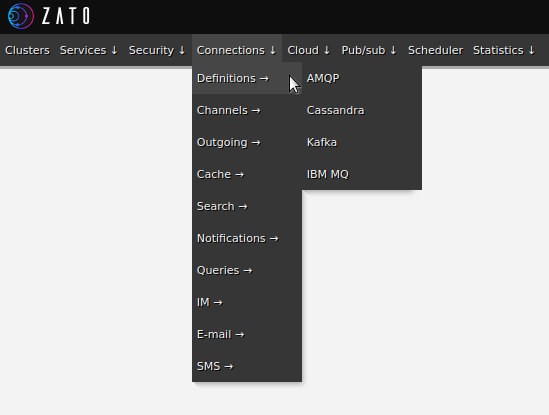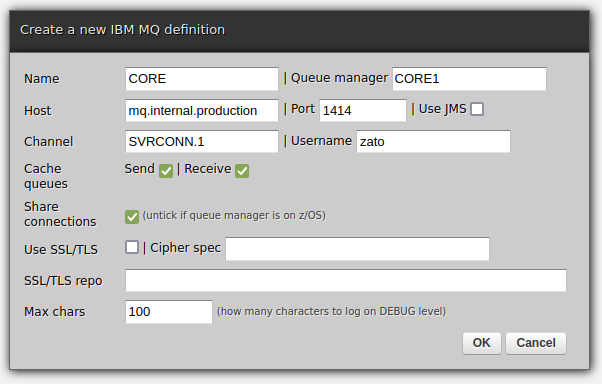Python library for IBM MQ
PyMQI is a production-ready Python extension for IBM MQ (formerly known as WebSphere MQ and MQSeries), which for 20+ years has been used by thousands of companies around the world with their queue managers running on Linux, Windows, UNIX and z/OS.
PyMQI allows Python programs to make calls to connect to queue managers, send messages to, get messages from queues, or to issue administrative calls, e.g. to create channels or list queue definitions.
The product is open-source software with professional support services offered by Zato Source.
Sample code
To put a message on a queue:
import pymqi
queue_manager = pymqi.connect('QM.1', 'SVRCONN.CHANNEL.1', '192.168.1.121(1434)')
q = pymqi.Queue(queue_manager, 'TESTQ.1')
q.put('Hello from Python!')
To read the message back from the queue:
import pymqi
queue_manager = pymqi.connect('QM.1', 'SVRCONN.CHANNEL.1', '192.168.1.121(1434)')
q = pymqi.Queue(queue_manager, 'TESTQ.1')
msg = q.get()
print('Here is the message:', msg)
The backbone of IBM MQ Python messaging
PyMQI is a low-level library that requires one to know IBM MQ APIs well.
It serves, however, as the basis for IBM MQ support in Zato, which is an enterprise service bus, API platform and backend application server in Python that lets one connect to many technologies with little or no programming.
This includes IBM MQ queue managers as well as the ability to seamlessly integrate with Java JMS systems.

